In 'Lovecraft Country,' Jonathan Majors Finds Sanctuary
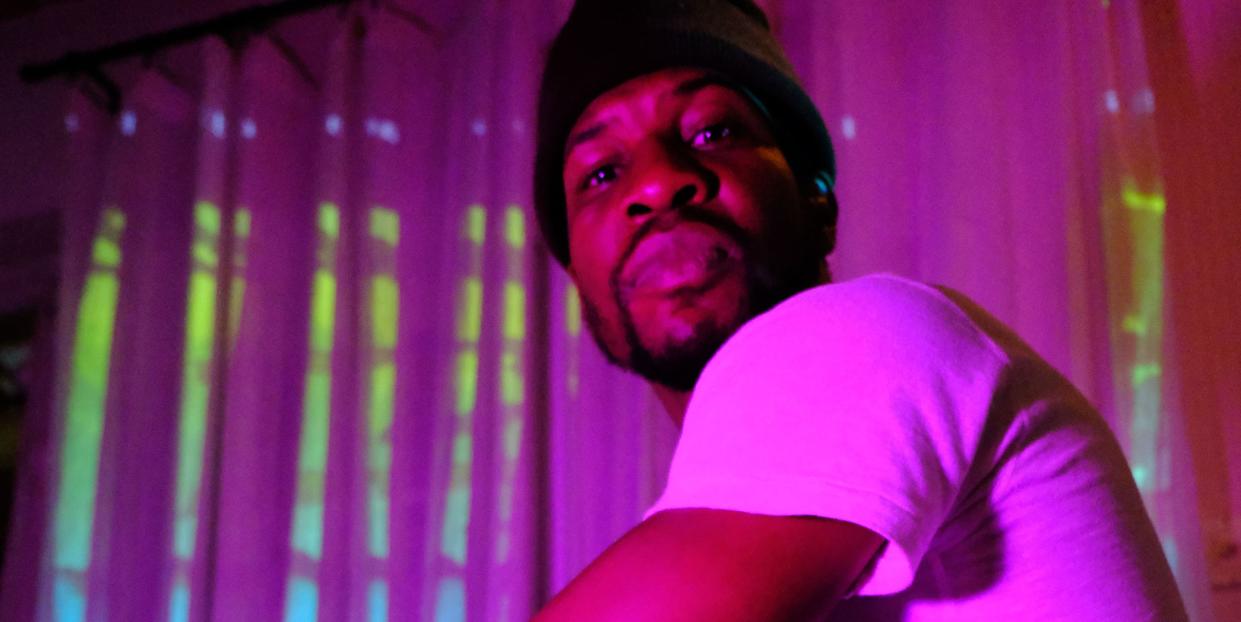
Jonathan Majors lets the spirit move him. As a child, he watched his mother, a pastor with a master’s degree in divinity, regularly read from not only the Bible but also the Torah and the Quran. He’d watch her prepare for her 45-minute Easter sermon for weeks, shuffling through drafts and refining the language for optimal catharsis in her listeners. “That type of service and work ethic and scholarship is something I adopted and made my own,” Majors says. “I'm not a pastor. I'm not a man of the cloth, but I have my own calling.”
He loves analogies, uses them every chance he gets. He describes his work like that of a samurai’s—everything in balance. Swords, blood, and heartache. Then watercolor, origami, peace. Everything can be a ministry, he says. Acting is his.
Don’t let the gravitas of his words fool you. They’re neither hyperbolic nor egotistical. In fact, as he prepares for the release of Lovecraft Country, the HBO series created by Misha Green, Jordan Peele, and J.J. Abrams, he laughs at the idea of sharing any panache with the A-listers. Instead, he insists he's a theater nerd. “I’m not a cool guy, you know what I'm saying?” he says. “The work completely un-Gs you. It just takes your G away. The amount of energy, the amount of imagination, how silly and how vulnerable you have to be to go and put these [works] together will completely un-G you.”
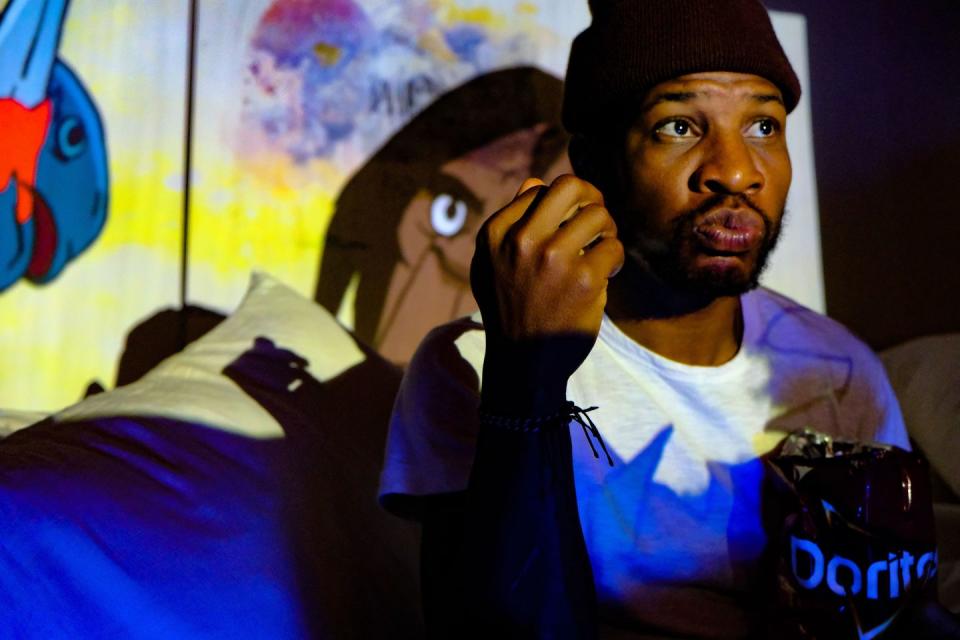
But if any work can restore his G, it's Lovecraft. An adaptation of the 2016 novel of the same name by Matt Ruff, the story follows Majors as Atticus Freeman, a Korean War veteran who returns home to Chicago and teams up with his uncle and an old friend to scour 1950s Jim Crow America for his missing father. Using his uncle’s Green Book-like Safe Negro Travel Guide to explore the areas where his father might be located, Atticus, Leti and George enter Lovecraft Country, where they encounter not only a host of many-eyed, tentacled monsters, but something more insidious: the bold-faced racism of so-called sundown towns.
What Majors revels in is the shock and subversion of this tale. H.P. Lovecraft was a notorious racist; this show is defiantly anti-racist. Lovecraftian pulp fiction was cheap, made from wood pulp; this is art, soaked in symbolism and brought to life with expensive effects. Monsters aren’t real, but in Lovecraft Country, monsters are real—and the white cops are much worse. “In America, public enemy number one is a Black man six feet or taller,” Majors says. “Atticus is public enemy number one. We've again subverted that, and he's our hero…As we move the armada and the troops down the field, it is a war of understanding. That's what we're really fighting for, to be understood and to be seen.”
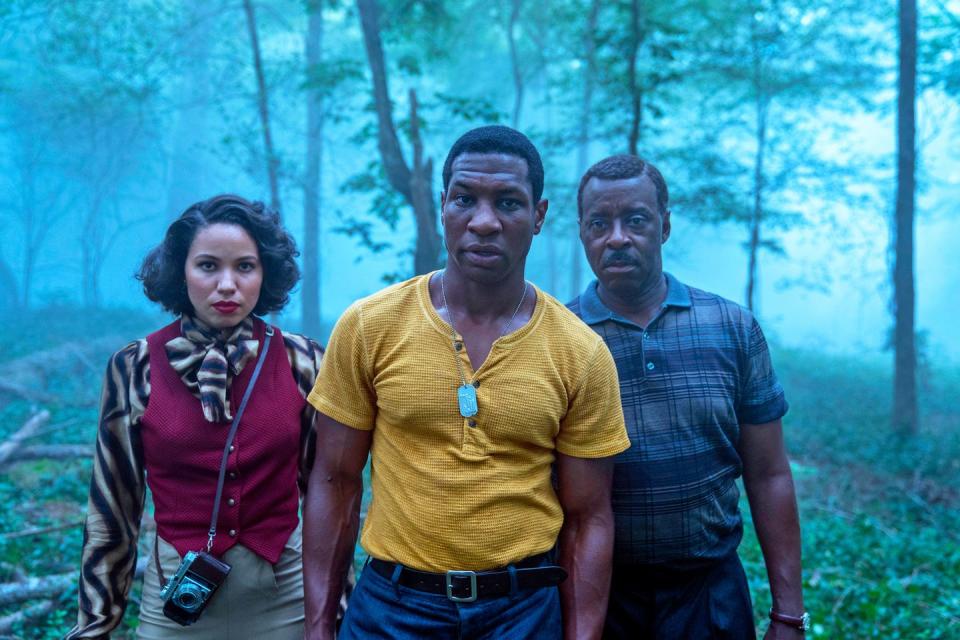
He uses these war analogies regularly, signaling a battle for Black people that’s that’s both symbolic and life-threatening: The fight to be recognized as human. Unlike Atticus, Majors never served in the military, but his father and both grandfathers did. His maternal grandfather, in particular, fought in Korea. Majors says that, when he sets his jaw and examines his own face, he sees his ancestors in the intensity of his gaze. He feels the soldier in his blood; he channeled him in Spike Lee’s Da 5 Bloods earlier this year. Majors often got in fights as a kid growing up in Dallas; he’s always understood anger, and at times even cradled it.
Majors was bullied as a child, though he turned into an energetic young athlete with what he calls a “big engine.” Being blessed with both height (he's six feet tall) and a sensitive emotional soul has made him prime heartthrob material for Twitter. As a preteen, a fight led him to an alternative school and a production of Romeo & Juliet, and he gave himself to acting like his mother gave herself to God. As he told the New York Times, he didn’t get into trouble again.
“Sometimes the world didn't feel fair enough. Everything feels fair on the stage,” he says. “Everything's fair in the scene because the objective is to tell the truth. There lies the meritocracy. He or she who can tell the truth with the most humanity always wins, always. All of that was downloaded into me around 13 or 14, and I believed it. I still believe it, and so I feel safest and I feel most vulnerable and most seen when acting, and most understood.”
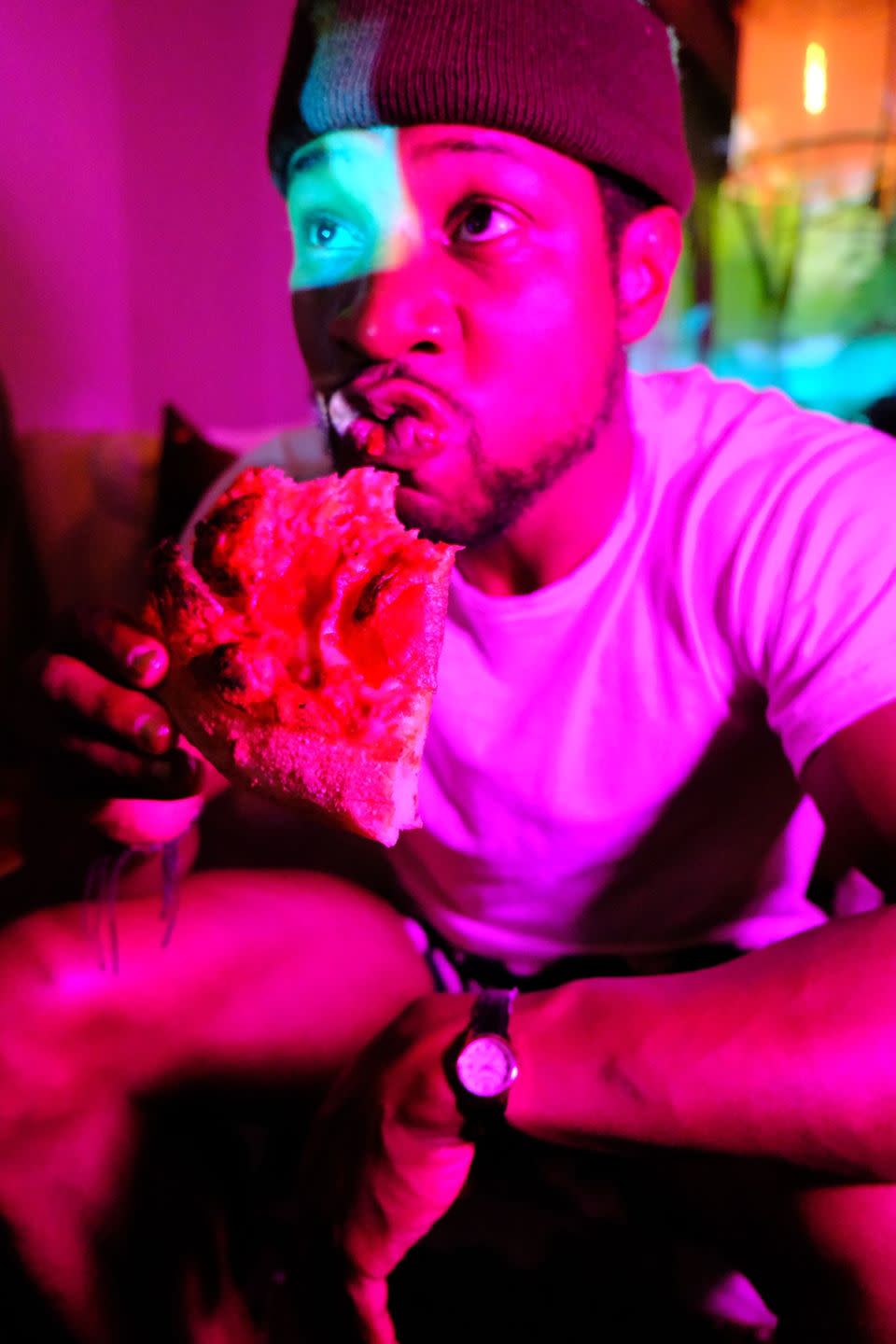
When he found out he’d earned the role of Atticus in Lovecraft, he broke down. It was the week before he began filming The Last Black Man in San Francisco, and he couldn’t believe he’d been picked. He couldn’t believe he’d been understood. He knew nothing about H.P. Lovecraft the man, but he threw himself into research with his usual intensity. He read Ruff’s source material multiple times, then pored over Lovecraft’s most famous works. “I geek out, you know,” he teases. “It's like Cthulhu, oh, it's on. The Reanimator, oh, it's on. I understand the lexicon a little bit better now.” To reclaim the work of a racist man as a work of Black heroism felt like “a miracle on top of a miracle.”
When he finally got on set, there was an instant understanding between himself and the other actors, most importantly Jurnee Smollett and Courtney B. Vance, who play Letitia and George. They didn’t need to discuss how to “act” when, in an early scene, their characters are pulled over by a white cop. Lived experience fueled the fear. Again, Majors uses spiritual language to describe it: He says he shared a “covenant” with Smollett and Vance.
“In that moment there was no conversation there, but there was a deep communication between all of us,” he says. “We’re going to go all the way. We’re going to protect each other in the scene. There’s this metaphysical level in which actors operate on, that we're here to hold space and push the envelope.”
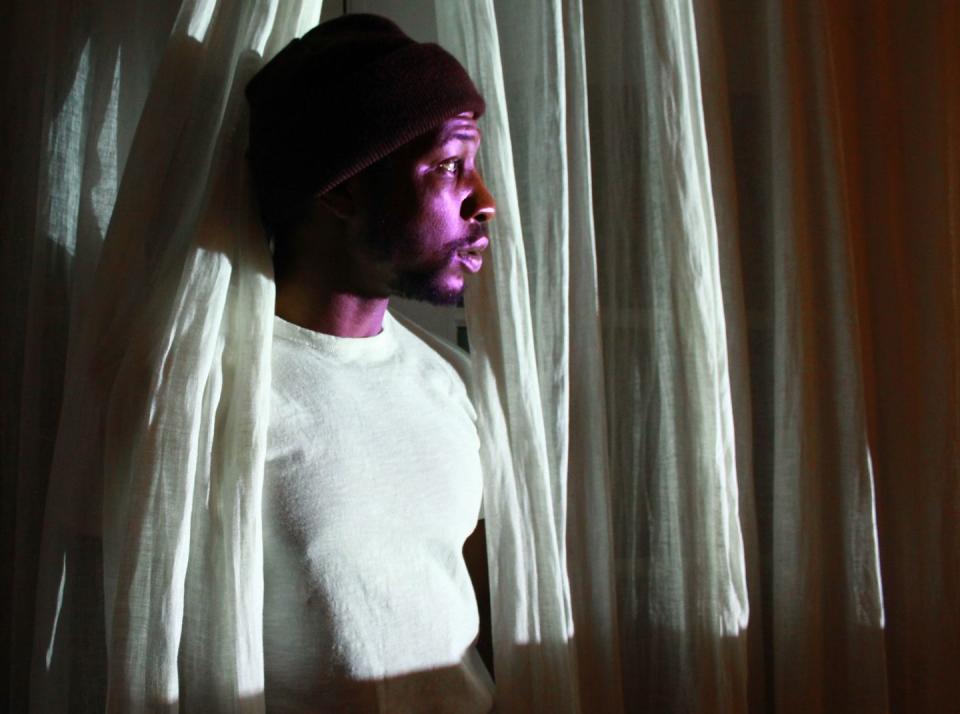
As for the monsters? Oh, God, they’re everything he’s ever wanted. He loves the nostalgic feel of old-school prosthetic horror reinvented with the green screens of today. “There's going to be a monster coming out of the ground?” He mimes himself taking direction from Green, his voice tilting to an ecstatic falsetto. “What's it look like? Okay, cool, cool, cool. Where's the blood? Okay, great.” Then he takes a beat. Because the thing about the monsters is, despite their VFX facades, they’re actually familiar. They shouldn’t be—they don’t exist—but they are. He sees the lines they trace to reality. He recognizes them.
“If I get very, very honest with myself, I live in a simile,” Majors explains. “Because as a 30-year-old Black man walking down the street, even here in Santa Fe, New Mexico, when I see a cop? Depending on how the day's going, I can see “cop” or I see, "Oh. Shoggoth. Monster." I can literally see that and feel that. So the monsters in many ways are really for the audience.”
What he’s implying is that the monsters, really, are for the white audience. Black Americans know why a white man in a sheriff’s uniform is just as dangerous as a shoggoth, one of Lovecraft’s most horrifying beasts. But as someone who has not lived that experience, the visceral depiction of a fictional creature, spitting and tearing flesh, sharpens the lens of reality. It’s what Peele did so masterfully with his first horror film, Get Out. He magnified what his community already knew. To be Black is to be under the threat of a shoggoth at all times.
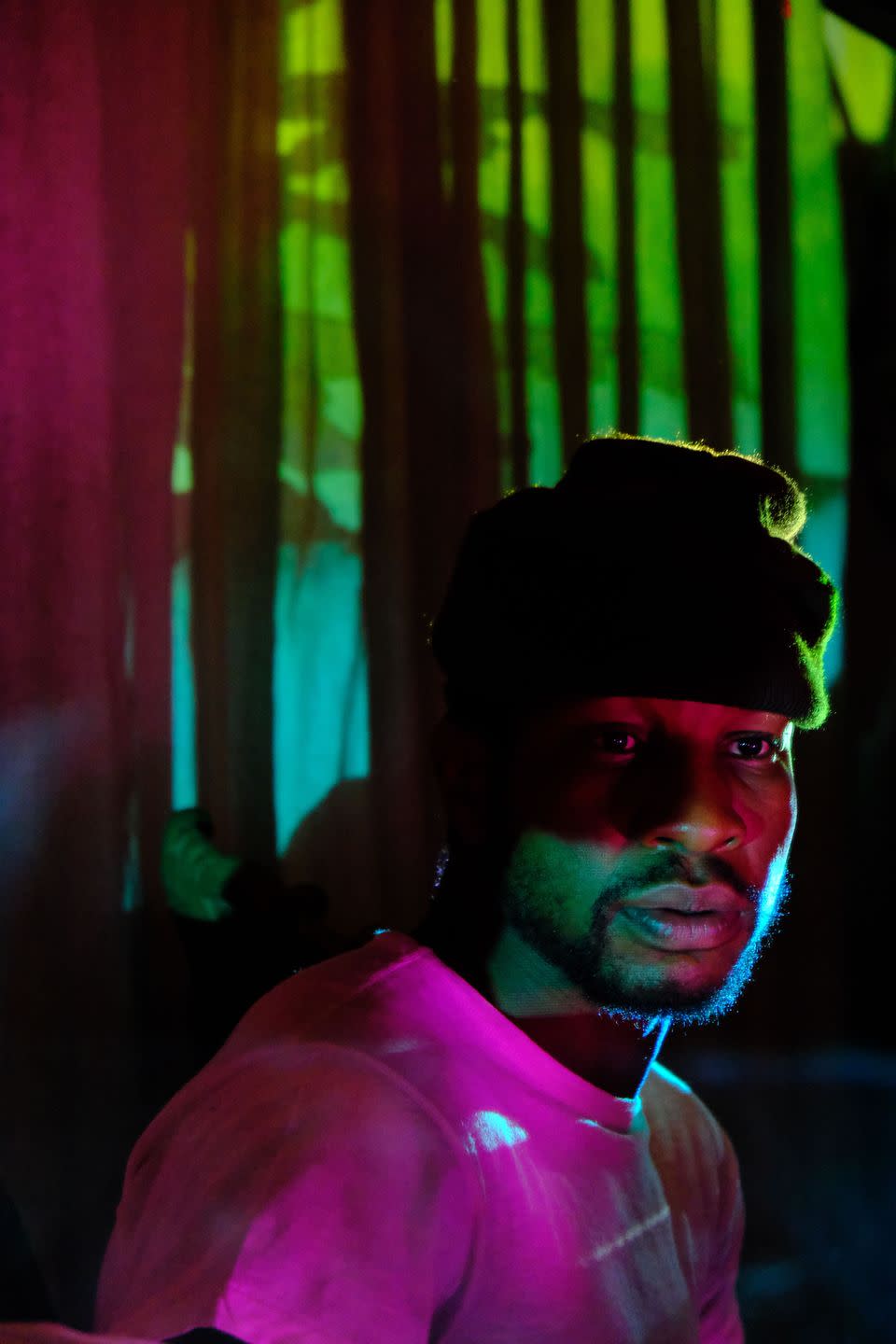
There’s a moment in the first episode, when Atticus reads a letter from his father that states, “The past is a living thing.” Majors loves this line. He loves it so much that he constructs another elaborate analogy to explain it: The past lives in our thoughts. With these thoughts, we perpetuate the past in the present. We upload them into the “cloud” of common human existence. But we have our own operating systems. If we can take in new information—like Lovecraft Country—and change our thoughts, what we project into the cloud offers catharsis. Majors has said before that artists are “essential workers.” It’s clear from his metaphors that he believes it deeply.
I ask if he’s intimidated, working with heavyweights such as Lee and Peele. He gives a resolute no. I ask how his mother’s faith still impacts him. He says it’s taught him to be ritualistic, to treat the work as sacrosanct. That’s what he wants from Lovecraft viewers—not for them to worship the material, but to let it wash over them. “You’ve got to wrestle with it,” he says. “Sometimes you wrestle with it, and sometimes you dance with it. You're going to have fun either way.” You just have to let the spirit move you.
You Might Also Like

